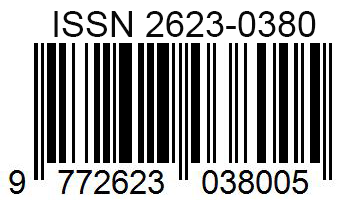Shaping Future Science Educators: Exploring First-Year Pre-Service Teachers’ Mastery of PISA-Style Challenges
DOI:
https://doi.org/10.37640/jip.v16i2.2192Keywords:
PISA, Pre-Service Teachers, First Year, Science EducationAbstract
This study investigates first-year science pre-service teachers’ abilities and perspectives on PISA questions, addressing Indonesia's low PISA rankings and challenges in teacher preparation. A total of 153 first-year students from four programs at Mulawarman University (mathematics, biology, physics, and computer education) participated. Using a mixed-methods approach, quantitative data were collected through validated PISA test instruments, while qualitative insights were drawn from open-ended responses. The results showed no significant differences in PISA scores by gender or study program, but significant differences emerged when comparing first-year students to third-year students and professional teachers, with first-year students scoring lower. Qualitative findings revealed themes such as the cognitive challenges posed by PISA questions, their ability to foster critical thinking, unfamiliarity with the format, and their real-world relevance. Despite difficulties, many participants found the questions engaging and valuable for developing analytical skills. These findings highlight the need to incorporate PISA-style assessments in teacher education programs to enhance higher-order thinking and better prepare pre-service teachers for international standards in education.
Downloads
References
Agustiani, E. D. (2020). Guru IPA dan Calon Guru IPA Menghadapi Soal-Soal Berkarakter PISA. Jurnal Studi Guru Dan Pembelajaran, 3(1), 67–86. https://doi.org/10.30605/jsgp.3.1.2020.237
Argina, A. W., Mitra, D., Ijabah, N., & Setiawan, R. (2017). Indonesian PISA Result: What Factors and What Should Be Fixed? The 1st Education and Language International Conference Proceedings, 69–79. https://www.oecd.org/pisa/pisa-2015-results-in-focus.pdf
Brozo, W. G., Sulkunen, S., Shiel, G., Garbe, C., Pandian, A., & Valtin, R. (2014). Reading, gender, and engagement: Lessons from five PISA countries. Journal of Adolescent and Adult Literacy, 57(7), 584–593. https://doi.org/10.1002/jaal.291
Darmiany. (2016). Self-Regulated Learning Mahasiswa Pendidikan Guru Sekolah Dasar (PGSD) Tahun Pertama. Jurnal Psikologi Pendidikan & Konseling, 2(1), 72–82.
Emilia, E., Sujatna, E. T. S., & Kurniasih, N. (2022). Training teachers to teach PISA-like reading: A case in Indonesia. Indonesian Journal of Applied Linguistics, 12(1), 58–78. https://doi.org/10.17509/ijal.v12i1.46534
Fenanlampir, A., Rafafy Batlolona, J., & Imelda, I. (2019). The Struggle of Indonesian Students in the Context of Timss and Pisa has not Ended. International Journal of Civil Engineering and Technology, 10(2), 393–406. http://www.iaeme.com/IJCIET/index.asp393http://www.iaeme.com/ijciet/issues.asp?JType=IJCIET&VType=10&IType=02http://www.iaeme.com/ijciet/issues.asp?JType=IJCIET&VType=10&IType=02http://www.iaeme.com/IJCIET/index.asp394
Fensham, P. J. (2009). Real world Contexts in PISA Science: Implications for context-based science education. Journal of Research in Science Teaching, 46(8), 884–896.
Fischbach, A., Keller, U., Preckel, F., & Brunner, M. (2013). PISA proficiency scores predict educational outcomes. Learning and Individual Differences, 24, 63–72. https://doi.org/10.1016/j.lindif.2012.10.012
Govorova, E., Benítez, I., & Muñiz, J. (2020). How Schools Affect Student Well-Being: A Cross-Cultural Approach in 35 OECD Countries. Frontiers in Psychology, 11. https://doi.org/10.3389/fpsyg.2020.00431
Harlen, W. (2001). The assessment of scientific literacy in the oecd/pisa project. In Studies in Science Education (Vol. 36, Issue 1, pp. 79–104). https://doi.org/10.1080/03057260108560168
Hopfenbeck, T. N., Lenkeit, J., El Masri, Y., Cantrell, K., Ryan, J., & Baird, J. A. (2018). Lessons Learned from PISA: A Systematic Review of Peer-Reviewed Articles on the Programme for International Student Assessment. Scandinavian Journal of Educational Research, 62(3), 333–353. https://doi.org/10.1080/00313831.2016.1258726
Itter, D., & Meyers, N. (2017). Fear, loathing and ambivalence toward learning and teaching mathematics: Preservice teachers’ perspectives (Vol. 19).
Lau, K.-C. (2009). A Critical Examination of PISA’S Assemen On Scientific Literacy. 1062–1088.
Lindner, J., Makarova, E., Bernhard, D., & Brovelli, D. (2022). Toward Gender Equality in Education—Teachers’ Beliefs about Gender and Math. Education Sciences, 12(6). https://doi.org/10.3390/educsci12060373
Liu, O. L., & Wilson, M. (2009). Gender differences in large-scale math assessments: PISA trend 2000 and 2003. Applied Measurement in Education, 22(2), 164–184. https://doi.org/10.1080/08957340902754635
Maure, F. S., Arifin, A., & Datuk, A. (2021). Peran Musyawarah Guru Mata Pelajaran (MGMP) dalam Meningkatkan Profesionalisme Guru Sosiologi di Kota Kupang. Jurnal Ilmu Pendidikan (JIP) STKIP Kusuma Negara, 12(2), 111–118. https://doi.org/10.37640/jip.v12i2.534
Mento, C., Lombardo, C., La Barbiera, C., Minossi, S., Silvestri, M. C., Lakmehsari, A. H., Iannuzzo, F., Genovese, G., Muscatello, M. R. A., & Kawai, T. (2024). Affective temperament, attachment style and life events related to abandonment in an Italian sample with somatic symptoms. Journal of Affective Disorders Reports, 18. https://doi.org/10.1016/j.jadr.2024.100845
Nandang Mustafa, A. (2023). Reflection On the Latest PISA Results of Indonesia. International Journal of Advanced Research, 11(05), 1223–1228. https://doi.org/10.21474/IJAR01/16988
Narmamatovich Shaturaev, J. (2021). Indonesia: Superior Policies and Management for Better Education(Community development through Education).ResearchGate.https://www.researchgate.net/publication/357271101
Nugrahanto, S., & Zuchdi, D. (2019). Indonesia PISA Result and Impact on The Reading Learning Program in Indonesia. http://puspendik.kemdikbud.go.id/inap-
OECD. (2006). The Programme for International Student Assessment: An Overview.
Pendidikan, J. S., Pembelajaran, D., Putrawangsa, S., Hasanah, U., & Kunci, K. (2022). Analisis Capaian Siswa Indonesia Pada PISA dan Urgensi Kurikulum Berorientasi Literasi dan Numerasi. Jurnal Studi Pendidikan Dan Pembelajaran (EDUPEDIKA), 1(1), 2829–4319. https://journal.pelitanusa.or.id/index.php/edupedika
Pratiwi, I. (2019). Efek Program PISA terhadap Kurikulum di Indonesia. Jurnal Pendidikan Dan Kebudayaan, 4(1), 51–71. https://doi.org/10.24832/jpnk.v4i1.1157
Ulkhaq, M. M. (2024). Factors Influencing Indonesian Students’ Performance on PISA 2018. In Children And Health (Vol. 4, Issue 1).
Wulan, S. (2024). Factors Affecting Teacher Performance. Jurnal Ilmu Pendidikan (JIP) STKIP Kusuma Negara, 16(1), 112–118. https://doi.org/10.37640/jip.v16i1.1952
You, H. S., Park, S., & Delgado, C. (2021). A closer look at US schools: What characteristics are associated with scientific literacy? A multivariate multilevel analysis using PISA 2015. Science Education, 105(2), 406–437. https://doi.org/10.1002/sce.21609
Zuhaida, A., & Imaduddin, D. M. (2019). Analisis Level Literasi Laboratorium Kimia dari Calon Guru IPA Tahun Pertama. Jurnal Inovas Pendidikan Fisika, 13(2), 2349–2359.
Downloads
Published
Issue
Section
License
Copyright (c) 2025 Charlos Falentino, Anggara Duta Medika, Evanita Mutang, Atin Nuryadin, Shelly Efwinda, Nurul Fitriyah Sulaeman, Alphero Tanlianto

This work is licensed under a Creative Commons Attribution-ShareAlike 4.0 International License.
Authors agree that this article remains permanently open access under the terms of the Creative Commons Attribution-ShareAlike 4.0 International License





















